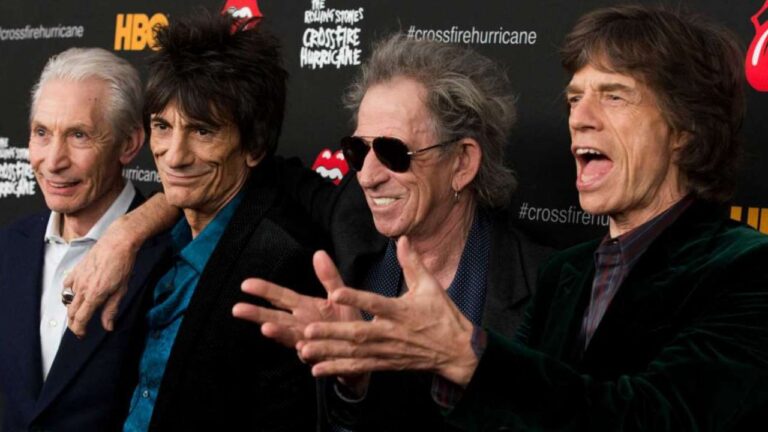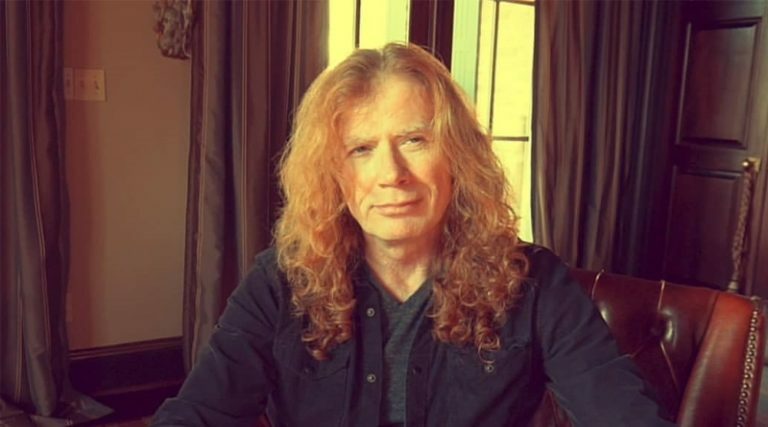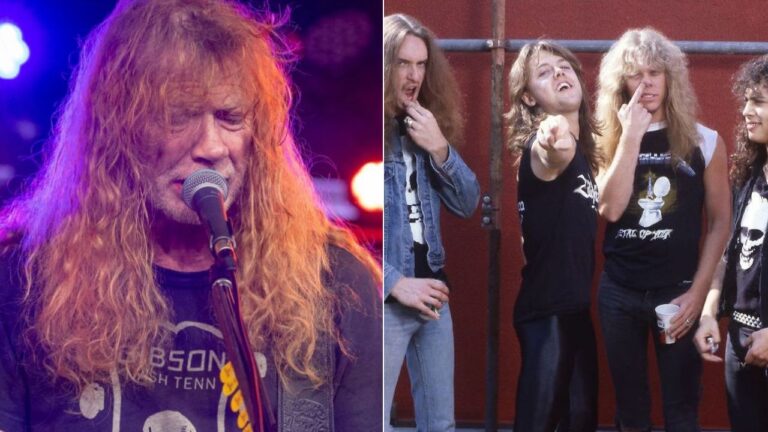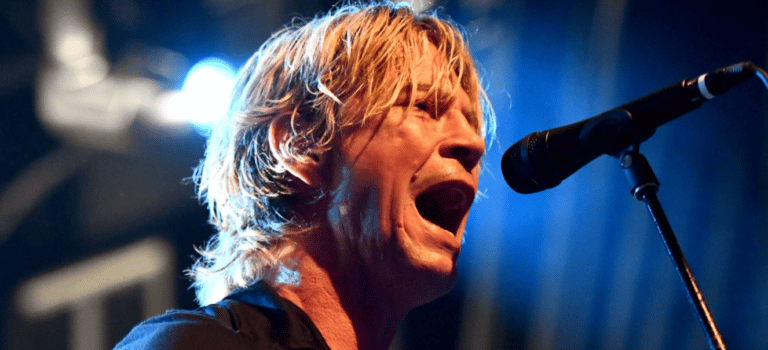The Top 6 Guitarists Alex Lifeson Picked As His Favorites
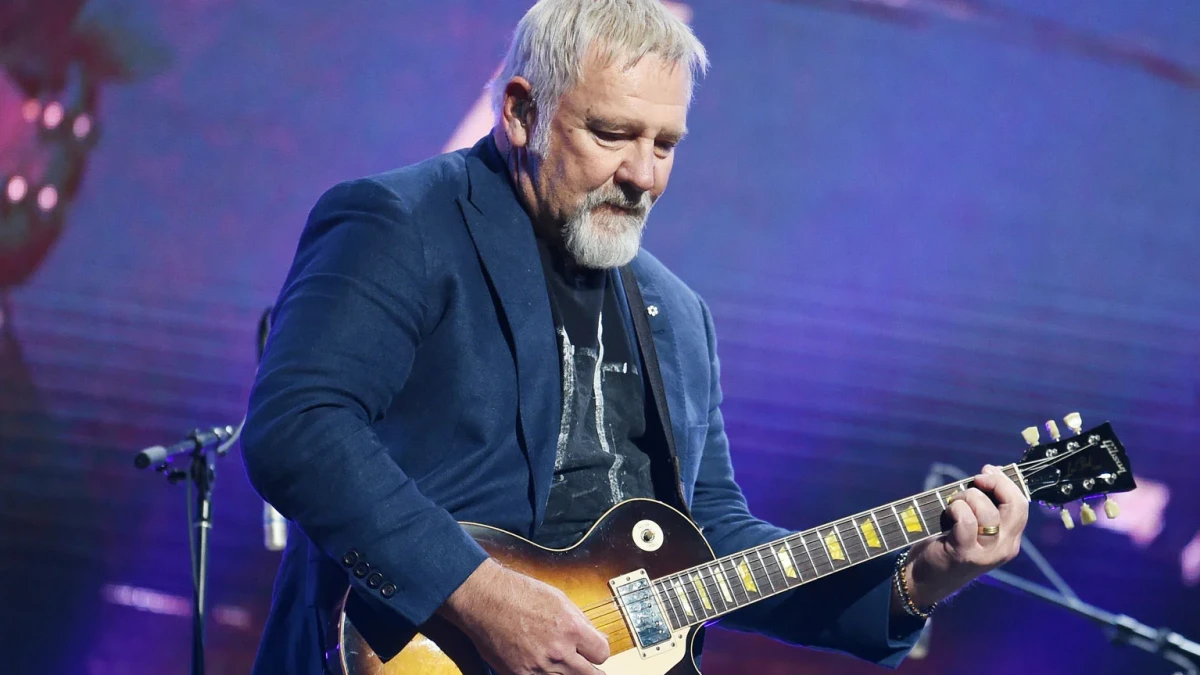
Alex Lifeson picks his favorite guitar players that have influenced him over the years. As he is one of the most respectable guitarists in rock music, he also shares his admiration for the artists who shaped his sound.
Alex Lifeson is widely regarded as one of the greatest guitarists of all time. He is known for being a founding member of the Canadian rock band Rush. He has inspired countless musicians with his stunning guitar playing and unique sound. Moreover, Lifeson‘s influences are diverse and range from classic rock to progressive rock, and his guitar technique has evolved over the years to become a hallmark of the Rush sound.
Born on August 27, 1953, in Fernie, British Columbia, Alex Lifeson‘s journey into the limelight commenced in 1968 when he, along with childhood friend Geddy Lee and drummer John Rutsey, formed the powerhouse trio that would become Rush. His guitar sound became the cornerstone of Rush’s sonic identity.
The 1970s saw Rush‘s ascent to prominence, with Lifeson‘s guitar playing evolving alongside the band’s musical exploration. His use of complex chord progressions, intricate solos, and a deft touch with various guitar effects contributed to the creation of a sound that was uniquely Rush. Lifeson‘s dexterity in switching between acoustic and electric guitars added an extra layer of complexity to the band’s compositions, marking him as a guitarist capable of navigating the multifaceted nature of progressive rock.
Diving deep into Lifeson‘s musical sound, it was characterized by a rich palette of tones and textures, and reached new heights in the 1990s and beyond. Tracks like Dreamline and Bravado proved his ability to infuse emotion into every note. It also showcased that even as musical trends shifted, his guitar work remained a constant source of inspiration for fans and fellow musicians alike.
However, Alex Lifeson‘s early influences were instrumental in shaping his unique sound and style. Growing up in the 1960s, Alex Lifeson was heavily influenced by the rock and roll music of the era. Bands like The Beatles, The Rolling Stones, and The Who were among his favorites, and their music had a profound impact on his early playing style. So, let’s learn about Alex Lifeson’s influences.
Alex Lifeson’s Influences: A Look at the Guitarist’s Musical Inspiration
Alex Lifeson‘s early influences include a wide range of classic rock artists such as The Beatles, The Rolling Stones, and Led Zeppelin. He has also cited Jimi Hendrix as a major influence on his guitar playing, particularly Hendrix‘s use of feedback and distortion. Lifeson‘s early influences helped shape his sound and laid the foundation for his later work with Rush.
Alex Lifeson Favorite Guitarists:
- Steve Morse
- Jimi Hendrix
- Eric Clapton
- Jimmy Page
- Jeff Beck
- Keith Richards
Over the years, Alex Lifeson sent respectful words to share his admiration for the artists who influenced him. Below, you can see the artists who influenced Alex Lifeson.
#6. Jimmy Page
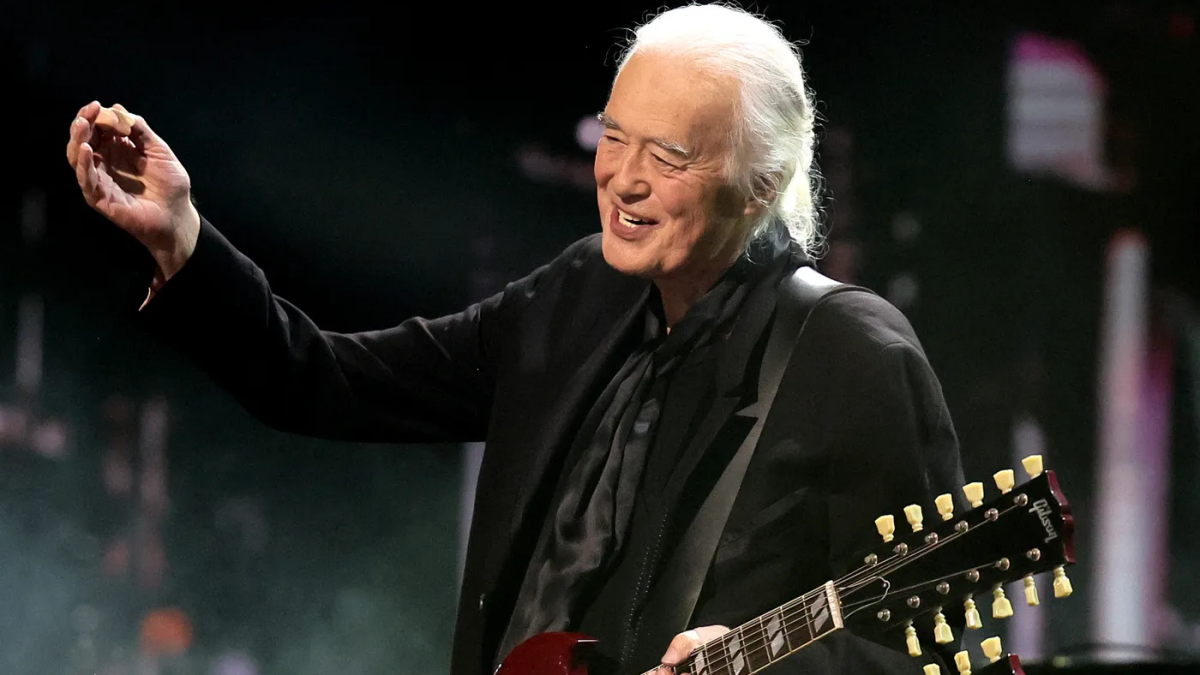
Born on January 9, 1944, in Heston, Middlesex, England, Jimmy Page began playing the guitar at a young age and quickly became a sought-after session musician. He played on recordings by some of the biggest names in British music, including The Who, The Kinks, and The Rolling Stones.
In 1966, Page joined the Yardbirds, a popular British rock band. He quickly became the band’s leader and helped steer them in a more experimental direction. The Yardbirds disbanded in 1968, and Page formed a new band, which he named Led Zeppelin. The band’s self-titled debut album was released in 1969 and became an instant classic. Led Zeppelin went on to become one of the most successful and influential bands of the 1970s, thanks in large part to Page‘s innovative guitar playing and songwriting.
One of the defining features of Jimmy Page‘s guitar style is his use of alternate tunings. He often used open tunings, which allowed him to create rich, full-bodied chords that were not possible with standard tuning. Page used a variety of open tunings, including Open G, Open D, and DADGAD.
In May 2022, Alex Lifeson recalled the moment he first met with Jimmy Page. He admitted it was a great moment in his life. According to him, Page was respectful of him.
“I was so nervous,” Lifeson admits. “But he was so gracious and so nice. This is when I discovered it’s always a bigger deal in your own mind than it is when you meet somebody.”
Alex Lifeson also explained what he impressed about Jimmy Page in 1996, saying: “The power he got out of an undistorted sound. He could capture that heaviness without being overly distorted. And stylistically he had a looseness to his playing that always worked and was very emotional. He just blew me away. I wanted to play exactly like him!”
#5. Keith Richards
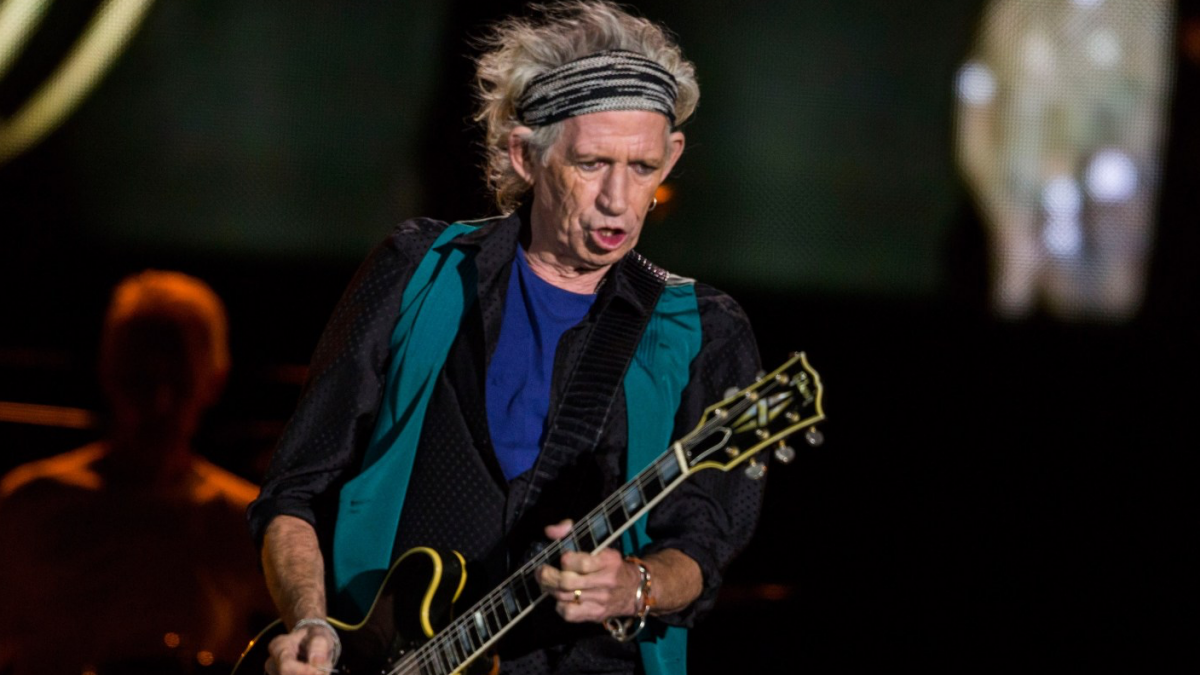
The 79-year-old Keith Richards became a rock icon for his releases with his rock band The Rolling Stones. He has been an idol for many rock and metal artists, including Alex Lifeson himself.
Keith Richards started his music career in the early 1960s. He co-founded the rock band The Rolling Stones with Mick Jagger, Brian Jones, Ian Stewart, and others in 1962. From its first day until the present, Richards‘ guitar sound defined the sound of The Rolling Stones band. His riffs have weathered the storms of personal struggles, emerging from the crucible of life’s challenges with an unyielding spirit.
To truly appreciate Richards‘ contribution to the musical tapestry, one must delve into the minutiae of his playing – the subtle nuances, the grit, and the finesse. It is in the moments between the chords, in the spaces where the notes breathe, that Richards‘ genius comes to life. His guitar is not just an instrument; it is a vessel through which he channels the essence of the blues, the soul of rock, and the untamed spirit of a bygone era.
Alex Lifeson expressed his admiration for Keith Richards by praising the guitarist’s guitar playing on classical The Rolling Stones song, Satisfaction. According to him, Richards‘ guitar playing was a huge influence on him when he was a child.
“Keith Richards distorted guitar, that fuzz guitar of the main riff just blew my mind when I was a 12-year-old kid and heard that for the first time,” Lifeson said.
#4. Jeff Beck
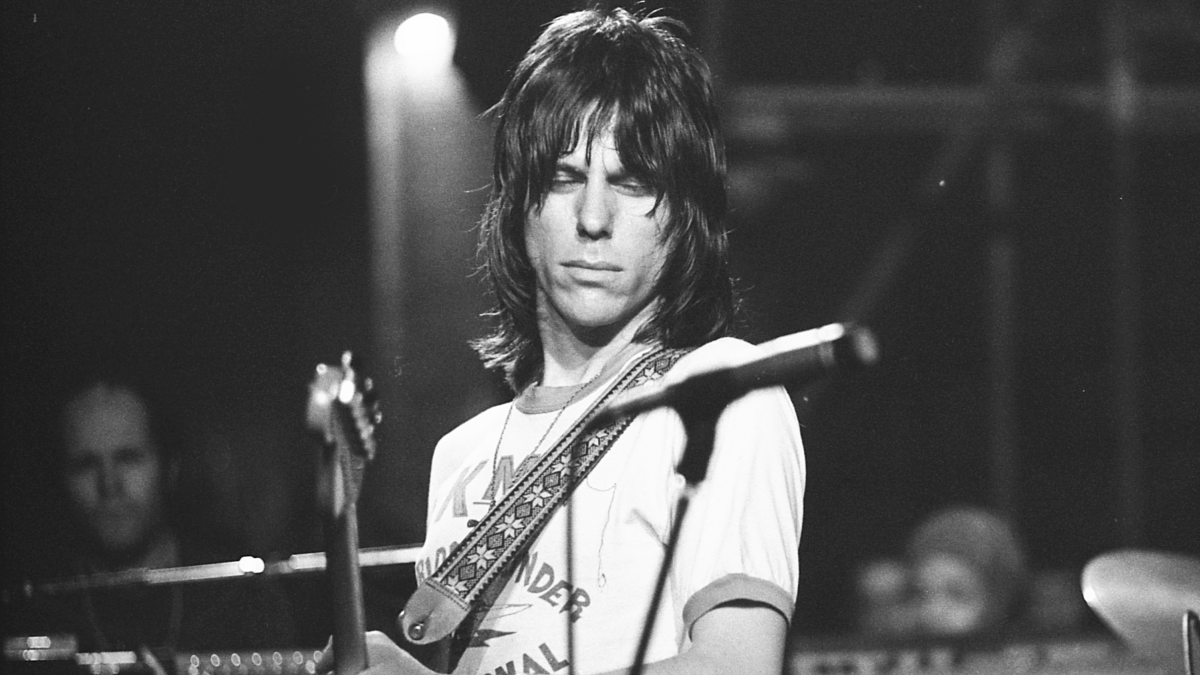
Alex Lifeson also named Jeff Beck one of his early influences in rock.
Jeff Beck‘s journey into the annals of music began in the 1960s as a member of The Yardbirds, where he first etched his name onto the fretboard of rock history. With tracks like Shapes of Things and Over Under Sideways Down, Beck revealed an early penchant for blending blues roots with a futuristic vision, setting the stage for a career that would defy categorization.
His guitar doesn’t merely speak; it weeps, growls, and soars with an emotive force that transcends language. In Cause We’ve Ended as Lovers, Beck conjures a melancholic beauty that resonates with listeners on a visceral level, showcasing a delicate touch that contrasts with the fiery intensity of tracks like Freeway Jam.
One of Beck‘s defining characteristics is his fearlessness in traversing musical boundaries. From pioneering blues-rock in the Yardbirds to delving into jazz fusion with the Jeff Beck Group and his solo career, he continually reinvents his sound. Collaborations with luminaries like Stevie Wonder, Rod Stewart, and Jan Hammer further underscore Beck’s versatility, demonstrating an artist unafraid to explore uncharted sonic territories.
After Jeff Beck passed away, Alex Lifeson was one of those who was devastated. Sending his prayers to both the late guitarist and his family, Lifeson also shared great words with him, saying:
“There have been many brilliant guitarists over the past century but every million years or so, a genius comes along whose singular command of the instrument is so nuanced, natural and novel. Jeff Beck’s playing made me smile and made me cry and made me try to be a better player and most of all, made me and countless others seek the ultimate expression of who we are as players. Thank you, Jeff.”
#3. Eric Clapton
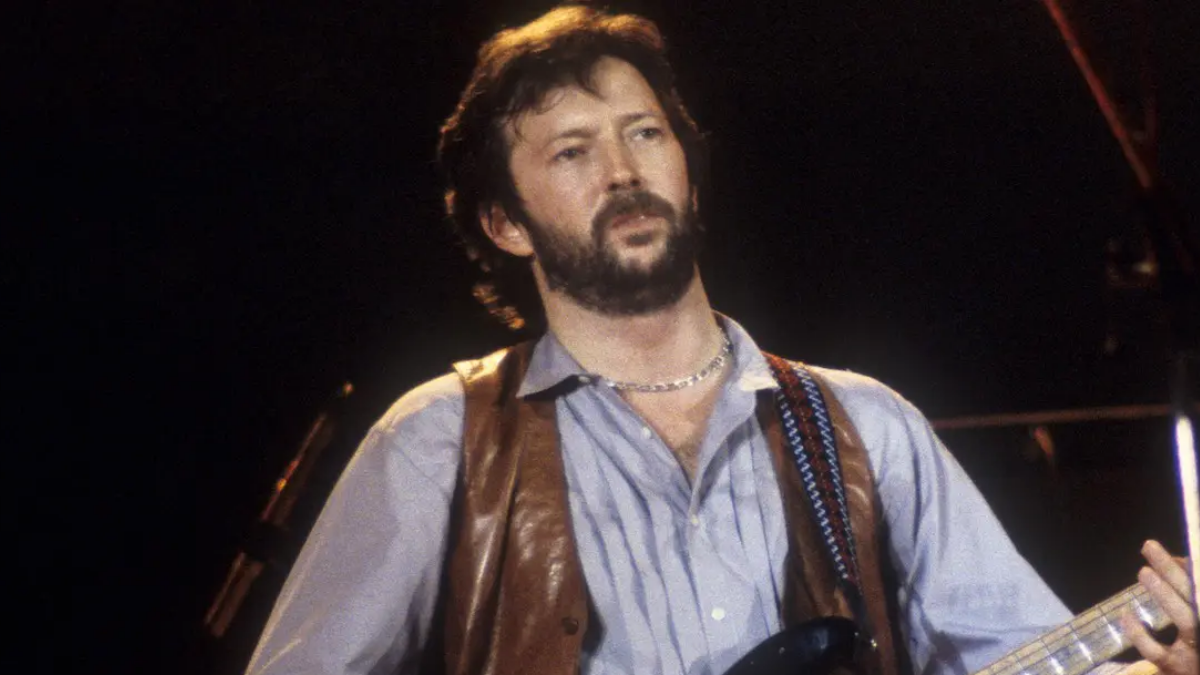
Eric Clapton has always been named an influence by rock and roll guitarists. In addition to the others, Alex Lifeson was also the guitarist who was influenced by Eric Clapton.
Eric Clapton‘s ascent to musical prominence began in the 1960s as a trailblazer of blues-rock with bands like The Yardbirds, John Mayall & the Bluesbreakers, and Cream. His tenure with Cream, in particular, birthed classics like Sunshine of Your Love and Crossroads, solidifying Clapton as a guitar god in an era where the electric guitar was emerging as a voice of rebellion.
As decades have unfolded, Clapton‘s career has been marked by an unending pursuit of artistic evolution. From the blues-rock of the ’60s to the acoustic introspection of his Unplugged era, and even forays into reggae with I Shot the Sheriff, Clapton has proven to be a chameleon, seamlessly adapting his style without losing the core of his musical identity.
Achievements came swiftly and resoundingly for Eric Clapton. Inducted into the Rock and Roll Hall of Fame three times – first with The Yardbirds in 1992, then with Cream in 1993, and finally as a solo artist in 2000 – Clapton‘s impact on the genre is indelible. His receipt of 18 Grammy Awards, including a Grammy Lifetime Achievement Award, further cements his place in the pantheon of musical greatness. These are the proof of why Eric Clapton is an influential person for Alex Lifeson.
Alex Lifeson praised Eric Clapton‘s work on Fresh Cream to reveal his admiration for the guitarist. He talked about Eric Clapton‘s quality.
“‘Fresh Cream,'” he said. “This was the first time we’d heard blues music done with that kind of power or that kind of flavor. Another player with a tremendous emotional quality to his playing.”
#2. Steve Morse
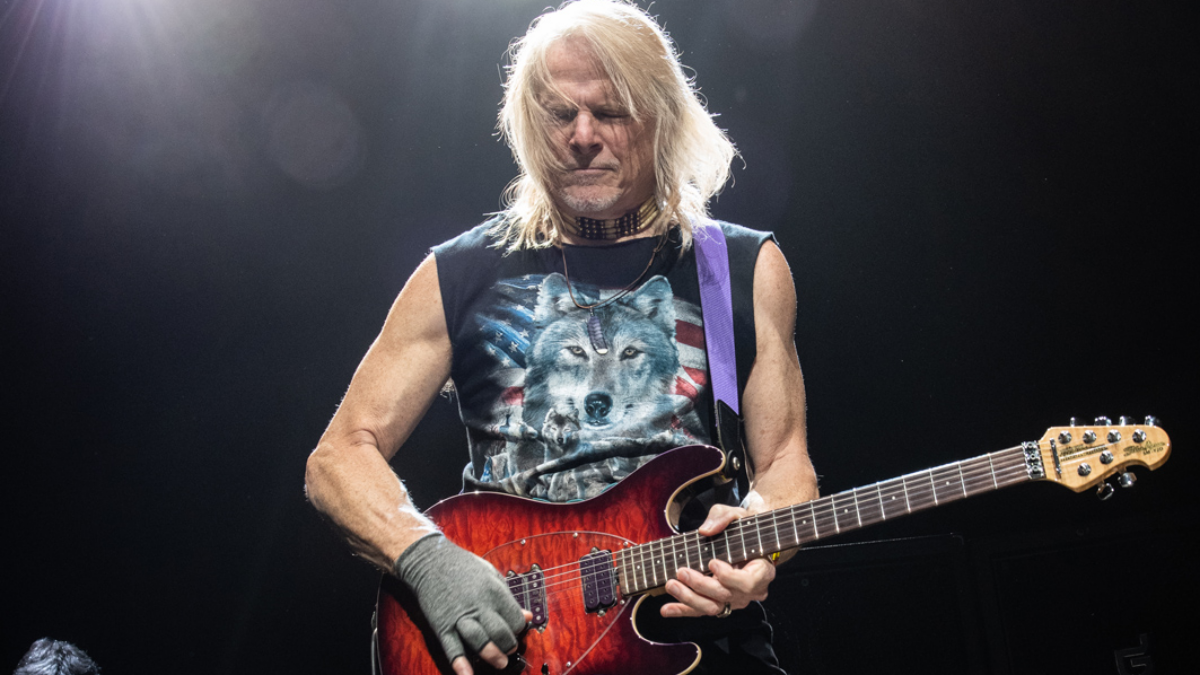
Steve Morse is known for his legendary works for the rock band Deep Purple. And Alex Lifeson named Steve Morse one of his favorite guitarists of all time.
Morse‘s technical mastery, coupled with an eclectic fusion of rock, jazz, and country influences, soon attracted the attention of the music world. In 1994, he joined the iconic rock band Deep Purple, solidifying his status as a virtuoso capable of navigating the diverse waters of progressive rock.
To dissect the Morse sound is to embark on an odyssey through a labyrinth of tones, textures, and tempos. Morse‘s technique was characterized by impeccable picking precision, tapping prowess, and a unique fingerstyle finesse. His ability has woven between genres, from the intricate compositions of the Dixie Dregs to the arena-rock anthems of Deep Purple.
In 2014, Alex Lifeson interviewed Music Radar to praise Steve Morse. In the interview, Alex Lifeson defended Steve Morse as an underrated guitarist.
“I’ve come across many players over the years and I’ve learned a lot from a lot of players,” he said. “But I think one of the most underrated players – and he’s respected. But he just didn’t get the recognition he deserved – is Steve Morse.”
#1. Jimi Hendrix
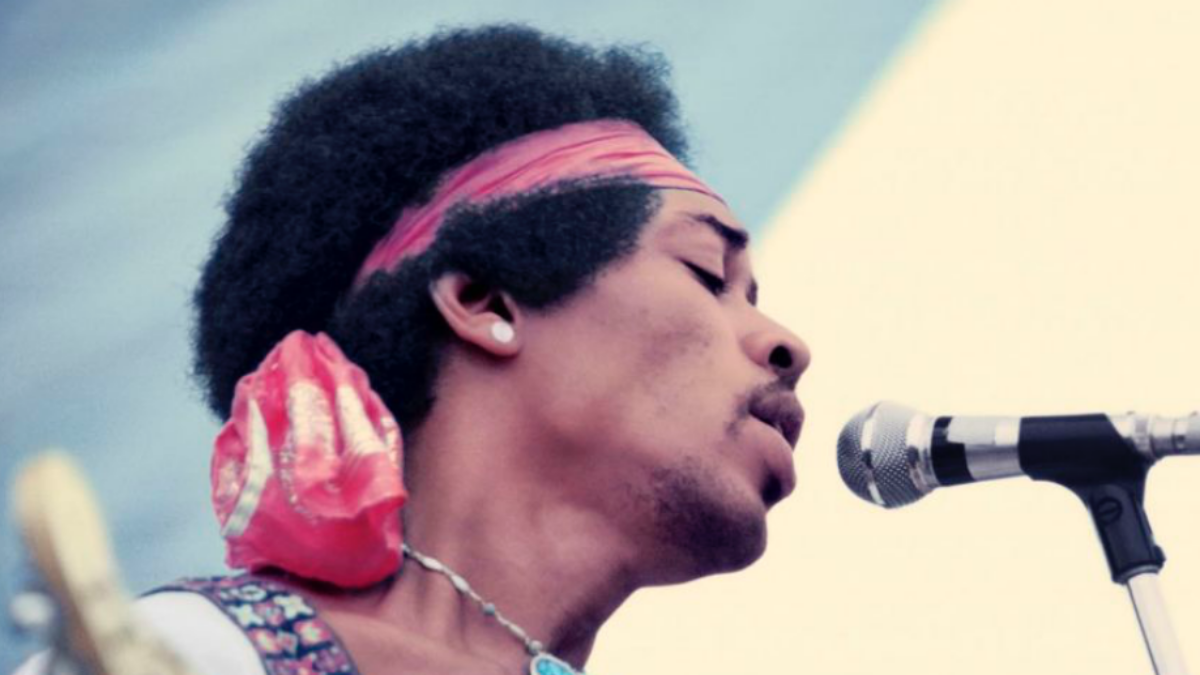
Jimi Hendrix is widely considered the greatest guitarist in the world. Alex Lifeson was sure of that, as he topped Jimi Hendrix as his favorite guitarist.
Jimi Hendrix‘s rise to prominence in the 1960s was meteoric. His debut, Are You Experienced, served as a psychedelic manifesto, introducing the world to a guitar virtuoso whose fingers seemed to channel otherworldly forces. The Jimi Hendrix Experience, with Noel Redding on bass and Mitch Mitchell on drums, became an ensemble of sonic conjurers, casting spells with classics like Purple Haze, All Along the Watchtower, and the cosmic blues odyssey, Voodoo Child (Slight Return).
Moreover, Hendrix’s sonic palette was as much a result of his imaginative use of effects pedals as it was of his extraordinary playing technique. The wah-wah pedal, in particular, became a signature element of his sound, most notably in tracks like Voodoo Child (Slight Return) – and Up from the Skies. The expressive control over the wah pedal allowed Hendrix to shape the dynamics and tonal character of his guitar in a way that was unprecedented at the time.
Additionally, his use of the Octavia, a fuzz and octave-doubling pedal, produced the distinctive, thickened lead tones heard in classics like Purple Haze and Fire. The marriage of these effects not only showcased Hendrix‘s technical proficiency but also illustrated his visionary approach to crafting a unique sonic identity.
In September 2022, Lifeson praised the Jimi Hendrix version of All Along the Watchtower. According to Alex Lifeson, Jimi Hendrix was a magical musician.
“This song grabs your heart and sails away with it; it sounds unlike anything anyone has ever done,” Lifeson revealed. “That was the magic of Hendrix: even if you copied what he recorded and tried to play like him, it could never be the same.”

